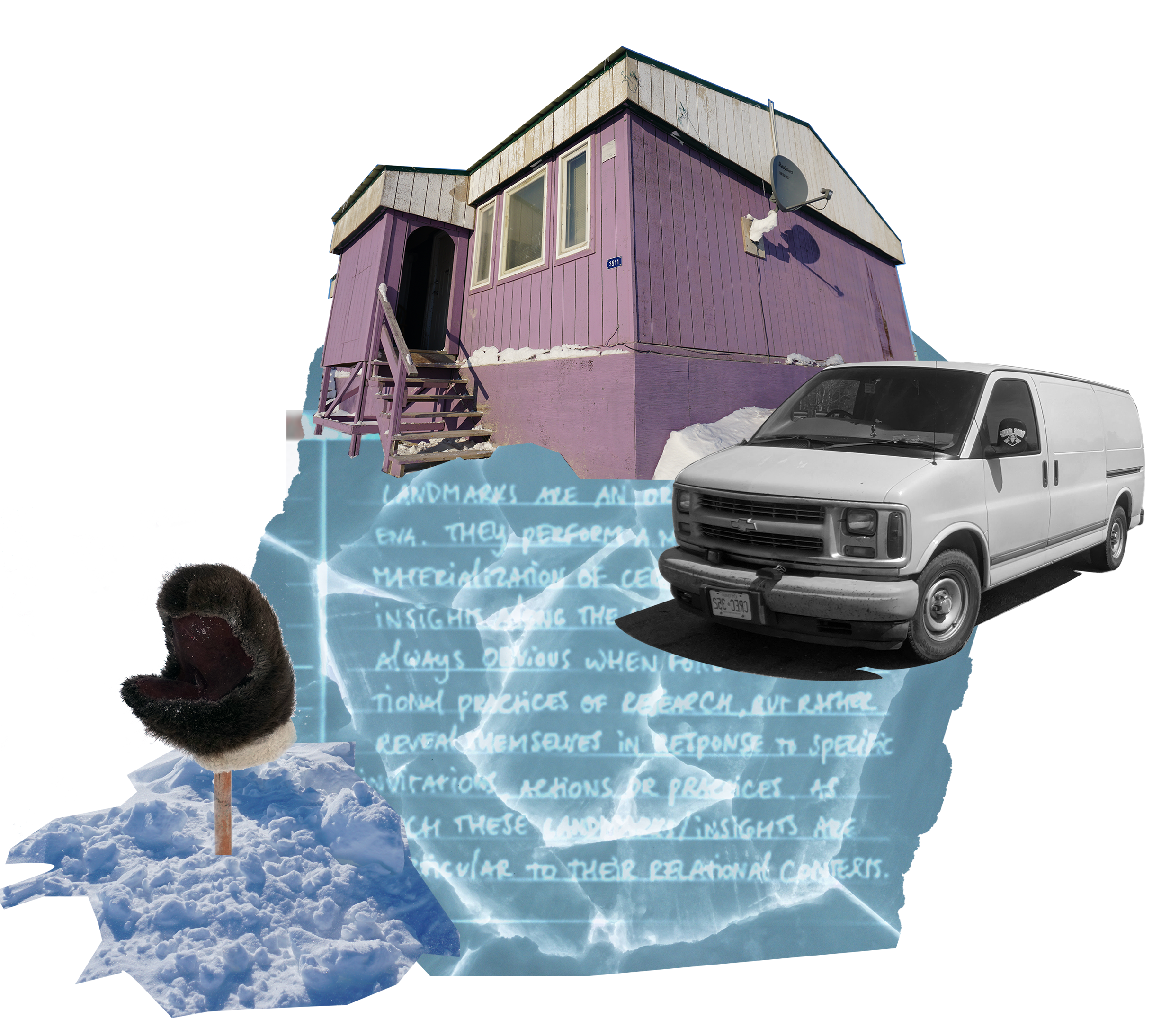Entering into relationship: Difference between revisions
No edit summary |
No edit summary |
||
| Line 1: | Line 1: | ||
[[File:Landmark.png|thumb]] | [[File:Landmark.png|thumb]] | ||
Is the reluctance of southern students to share the food of an Inuit host | |||
part of this same process? Is “polite” refusal ultimately a colonizing action? To | |||
be sure, most qallunaat students visiting Pangnirtung are strongly motivated | |||
by the desire not to be colonizers. Yet when this priority compels us to shy | |||
away from potentially complicated and entangling encounters, we may wind | |||
up rehearsing those individualist and separatist practices that ultimately feed | |||
the colonial process by liberating its agents from responsibility to others. The | |||
solution to this conundrum would be the flip-side of Donald’s theorem: that | |||
decolonization might be understood as the extended process of acknowledging | |||
or honouring relationship. But what does that look like? And how might it be | |||
enacted within Indigenous literary | |||
Keavy Martin quote 2016 | Keavy Martin quote 2016 | ||
Revision as of 13:28, 14 January 2025

Is the reluctance of southern students to share the food of an Inuit host part of this same process? Is “polite” refusal ultimately a colonizing action? To be sure, most qallunaat students visiting Pangnirtung are strongly motivated by the desire not to be colonizers. Yet when this priority compels us to shy away from potentially complicated and entangling encounters, we may wind up rehearsing those individualist and separatist practices that ultimately feed the colonial process by liberating its agents from responsibility to others. The solution to this conundrum would be the flip-side of Donald’s theorem: that decolonization might be understood as the extended process of acknowledging or honouring relationship. But what does that look like? And how might it be enacted within Indigenous literary
Keavy Martin quote 2016
Return to Cut 2: "Co-creating the Animated Graphic Documentary"
